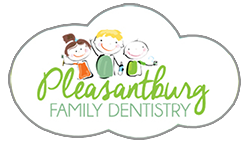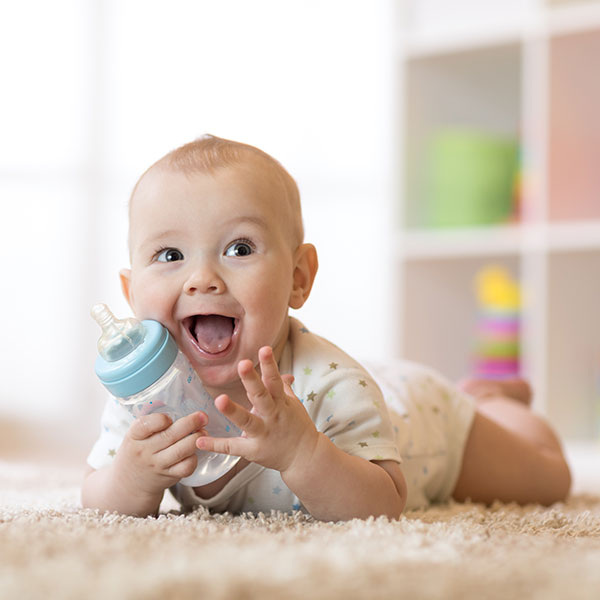Baby Bottle Tooth Decay in Greenville, SC
As partners in your child’s oral health care, Pleasantburg Family Dentistry will equip you with the information and advice necessary to ensure your child’s teeth remain healthy. We aren’t just here for children, we’re here for parents as well. One important issue to be aware of is baby bottle tooth decay.
How to Prevent Baby Bottle Tooth Decay
Your little one will lose all their baby teeth eventually. However, caring for your child’s baby teeth is important for comfortable oral function and good health. Also, decay on baby teeth can negatively affect permanent teeth developing within the jaw.
DID YOU KNOW?
All 20 of a child’s primary teeth are already in their jaw at birth!
Keeping your baby safe from early childhood caries is simple. Don’t allow your baby to go to sleep with a bottle or sippy cup filled with anything. If approved by your pediatrician after six months of age, your child can be put to bed with water. It’s that simple.
Here are a few more tips to deter cavities in babies and toddlers:
- Don’t allow your child to keep a bottle all day. Instead, take the bottle away after feeding.
- After feeding your infant, clean their mouth, including gums, with a damp, soft, moist rag.
- Do not share utensils and cups with your child or between children. This can allow bad oral bacteria to pass to your child.
- After the first tooth erupts, brush twice daily with a toothpaste that does not contain fluoride and an appropriately sized toothbrush.
- Once two teeth are present, begin gently flossing daily.
- A child older than three years can use fluoridated toothpaste, but he should not swallow it.
- Bring infants and toddlers to our office for twice-a-year checkups.
- Starting around age four, dental cleanings should follow checkups.
Symptoms of early childhood caries include but are not limited to:
- Stains, brown spots, or other discoloration on teeth, particularly the back of front teeth.
- Cavities or holes in teeth.
- Dental pain or sensitivity to hot/cold temperatures and sweet foods and drinks.
- Pain or fussiness when feeding.
Treatment for Baby Bottle Tooth Decay
If your baby develops tooth decay, treatment will be customized based on the severity. In some cases, fluoride treatment, good dental hygiene practices at home, and dietary changes can help. If necessary, we will place dental fillings and/or crowns. In severe cases, teeth may need to be extracted. We will help your child re-establish good oral health to relieve pain and for comfortable oral function.
Creating Healthy Habits that Last a Lifetime
Does your baby or toddler show symptoms of tooth decay? Have you brought your child in for a checkup and cleaning lately? Contact Pleasantburg Family Dentistry today and schedule an appointment with our experienced team. We look forward to helping your child enjoy great oral health and a gorgeous smile for a lifetime!



